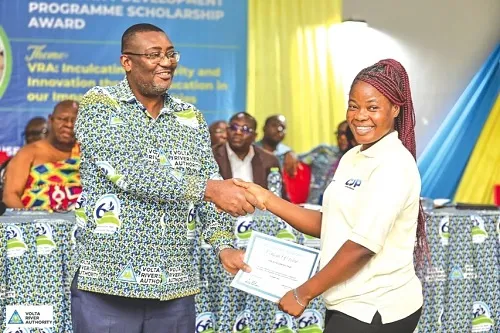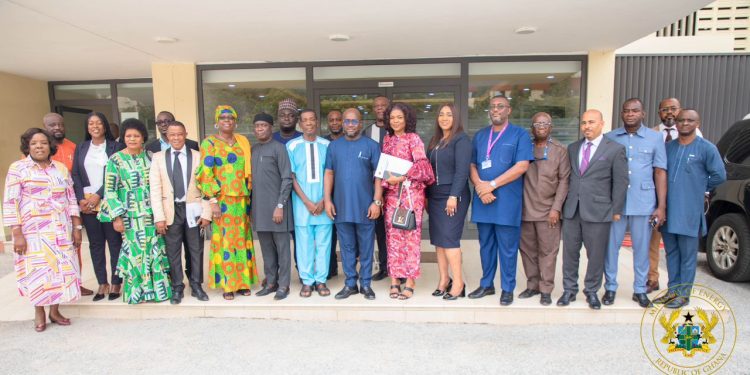VRA grants GH₵1m scholarships to 60 brilliant but needy students
The Volta River Authority (VRA) has awarded 60 brilliant but needy students in various public tertiary institutions scholarships worth GH₵1million.
The gesture falls under the authority’s Community Development Programmes (CDP), which has been supporting needy students from communities within the catchment areas of operation both in the Eastern and Volta Region. The beneficiaries are offering various programmes from the Sciences to Humanities at different levels.

Over the past decade, the scholarship scheme has benefitted about 449 students – both at the Senior High School (SHS) level before the introduction of free SHS, and the tertiary level. The number of beneficiaries keeps increasing year-on-year.
Chief Executive of the VRA, Emmanuel Antwi-Darkwa, in an address read on his behalf, mentioned that the Volta River Development (Amendment) Act 2005 Act 692 mandates the authority to carry out environmental and sustainable development activities in support of its communities; and to that end, the CDP Framework was launched as part of its Environmental Management Plan.
The framework provides the impetus for the fulfilment of statutory and negotiated obligations to communities impacted by its operations in the areas of education, health, social infrastructure projects, environmental protection activities, cultural activities and industrial attachments.
“This year, 60 brilliant but needy students in various public tertiary institutions will be awarded scholarships worth GH₵1,000,000 for the 2021/2022 and 2022/2023 academic years. This brings the total number of beneficiaries to 449,” he said.
The authority emphasised that the CDP scholarship programme is a highly competitive one, and priority is given to applicants offering programmes in Science, Technology, Engineering and Mathematics (STEM).
In an era of digitalisation and technological advancement, the VRA is also on a digital transformation trajectory in line with its creativity and innovative agenda; and as such, the scholarship application procedure has been migrated online.
Municipal Chief Executive (MCE) for Lower Manya Krobo, Simon Kwaku Tetteh, commended the authority for the sustained commitment toward human resources development in communities within Krobo land.
He urged the 60 beneficiaries to be good ambassadors of the brand, learn hard and come back to support community development.
Paramount Chief of Manya Krobo Traditional Council and President Eastern Regional House of Chiefs, Konor, Nene Sakite II, said education is dear to his heart because it is the sure way to train and develop future leaders by giving them all the help and assistance they need.
“The children and youth of today are the leaders of tomorrow. If we don’t give them the opportunity to be able to develop their full potential to do what is expected of them in the future, then we are doomed as a country. Therefore, initiatives such as the VRA scholarship Programme should be encouraged and duplicated all over remote communities to support talent development.
“To the beneficiaries, live a purposeful life by becoming a pillar in your community, giving back, being innovative and changing the narrative with your creativity. This is an opportunity to advance your horizons, so make better use of it,” he said.
The past beneficiaries of the scholarship have formed an alumni association to support their various local communities. This development the Konor described as an impressive one to help such highly educated individuals also contribute to local community development.
Paramount Chief, Vakpo Traditional Area, Torgbui Gborgborlulu V, on his part, emphasised that it is necessary to educate young minds to put their talent and skills to work as their value would be realised based on the impact they have made. “Education is giving you the opportunity to learn about the world around you but when you come out, one needs to live a purposeful life and that is based on the impact made in society.”



